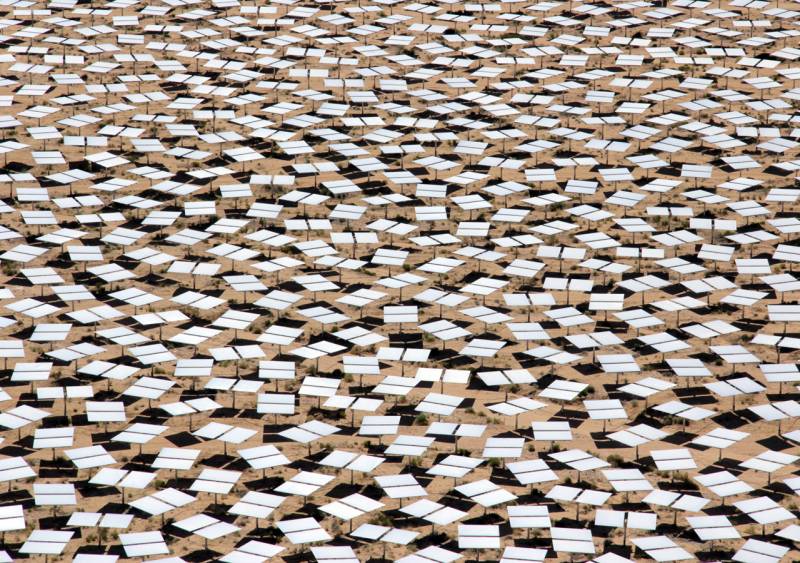Unlike the deadly heat wave the state experienced over Labor Day weekend, temperatures this week have been cooler, as the ash and smoke that cast an apocalyptic orange hue in the Bay Area also acted as a shield against the sun, reducing energy needs.
When temperatures are lower, “people aren’t running their air conditioners as much,” Del Chiaro said. “And they’re just not using as much energy, so usually there’s a correlation between the down output of solar and less demand for electricity.”
Renewable energy doesn’t contribute to climate change, a driving force behind the longer and more extreme wildfire seasons so currently evident up and down the West Coast. Still, California’s reliance on renewable energy has come under scrutiny this summer, as business groups blamed the state’s use of solar and wind for contributing to rolling power outages when demand has soared during heat waves.
“California, in many ways, is the canary in the coal mine,” Todd Snitchler, president and CEO of the Electric Power Supply Association, told The Wall Street Journal. “Many of the natural-gas units that some in California would like to see go away have been exactly what’s needed to keep the system operating.”
But the outages were not a consequence of an overreliance on renewable energy, Borenstein said; rather, they were the result of poor planning.
The grid’s capacity is based on times of peak demand, usually a few hours before sunset. Problems have occurred “more after the peak demand hour, when demand is dropping a little bit but supply is dropping even more because the sun is going down," he said.
“For the most part, we have treated ‘demand’ as something that just shows up, and we have to have enough supply to meet it. Part of the solution is moving away from that and recognizing that ‘demand’ can do some shifting, too.”
On the industrial level, Borenstein said, the state needs to do a better job of building up its solar and other renewable capacity, allowing easier transmission of energy between state lines.
Del Chiaro points to a lack of incentive for more efficient ways to store solar energy. Only a small fraction of the state’s solar users are equipped with batteries that can reserve and store electricity when the sun isn’t shining, she said. Those batteries can cost up to $10,000 each. She hopes the state will do more to subsidize the technology to make it more affordable.
Jon Brooks contributed to this report.
